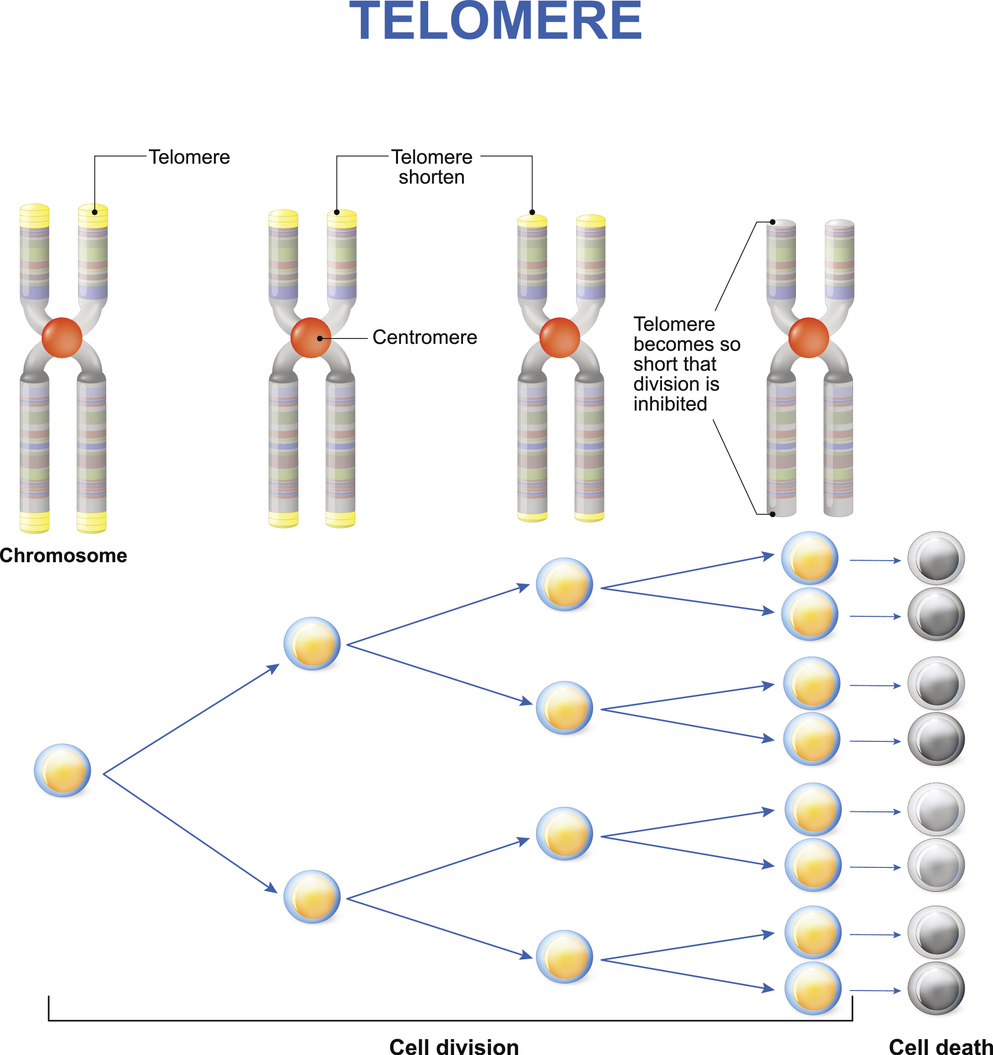Telomeres are essential components of our DNA that play a crucial role in aging and overall health. They are often likened to the plastic tips on shoelaces, protecting our chromosomes from deterioration and ensuring the stability of our genetic information. Understanding telomeres and their impact on healthspan can provide insights into the aging process and potential strategies to promote longevity.
What Exactly Are Telomeres?
Telomeres are repetitive nucleotide sequences at the ends of our chromosomes. These sequences do not encode proteins but serve to protect the ends of chromosomes from damage and prevent them from fusing with other chromosomes (1). Every time a cell divides, telomeres shorten, which eventually leads to cell aging and death when they become too short (2).

The Role of Telomeres in Aging and Health
Telomeres play a significant role in cellular aging. As we age, our cells divide repeatedly, causing telomeres to shorten progressively (3). When telomeres reach a critically short length, cells enter a state known as senescence or undergo apoptosis (programmed cell death). This process is a natural part of aging, but accelerated telomere shortening is linked to various age-related diseases and conditions (4).
Key Factors Affecting Telomere Length
Genetics: Inherited factors influence baseline telomere length and the rate of shortening (5).
Lifestyle: Factors such as stress, smoking, poor diet and lack of exercise can accelerate telomere shortening (6).
Environmental Factors: Exposure to pollutants and radiation can also impact telomere length (7).
Why Are Telomeres Significant to Longevity and Healthspan?
Maintaining healthy telomeres is crucial for promoting longevity and healthspan—the period of life spent in good health. Here’s why telomeres are significant:
- Cellular Health: Longer telomeres are associated with better cellular function and a reduced risk of age-related diseases (8).
- Disease Prevention: Shortened telomeres are linked to conditions such as cardiovascular disease, diabetes, and certain cancers (9).
- Healthy Aging: Strategies that promote telomere health can enhance overall well-being and slow down the aging process (10).
Strategies to Support Telomere Health
Research suggests several approaches to maintain telomere length and support overall health:
- Healthy Diet: Consuming a diet rich in antioxidants, vitamins and minerals can help protect telomeres from oxidative stress (11).
- Regular Exercise: Physical activity is associated with longer telomeres and improved metabolic health (12).
- Stress Management: Techniques such as meditation, yoga, and mindfulness can reduce stress and its negative impact on telomeres (13).
- Avoiding Harmful Habits: Quitting smoking and reducing alcohol consumption can prevent accelerated telomere shortening (14).
Conclusion
Telomeres are vital to our understanding of the aging process and overall health. By adopting a healthy lifestyle and managing stress, we can support telomere health and potentially extend our healthspan. Continued research in this field holds promise for developing new strategies to promote longevity and prevent age-related diseases.
Discover more about how our Elevate Bio range of products can support your health and wellness journey by visiting our Science page.





